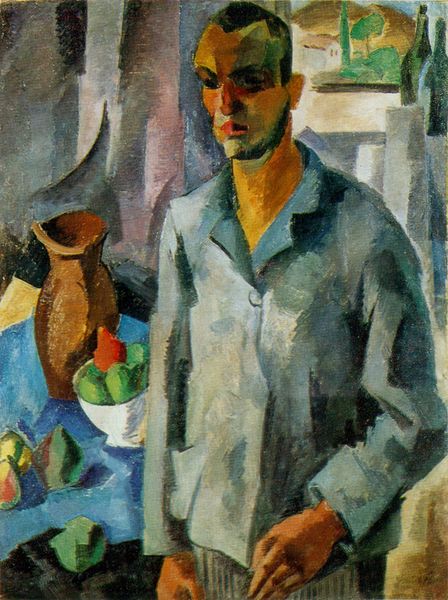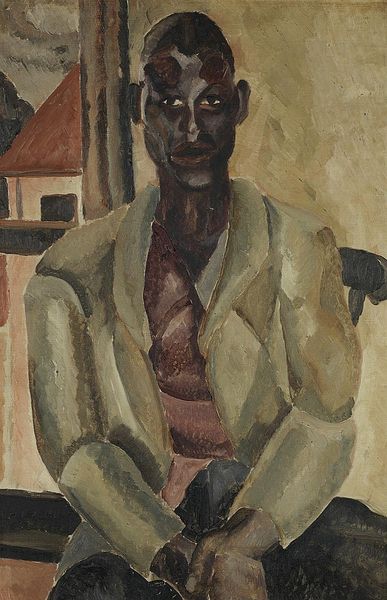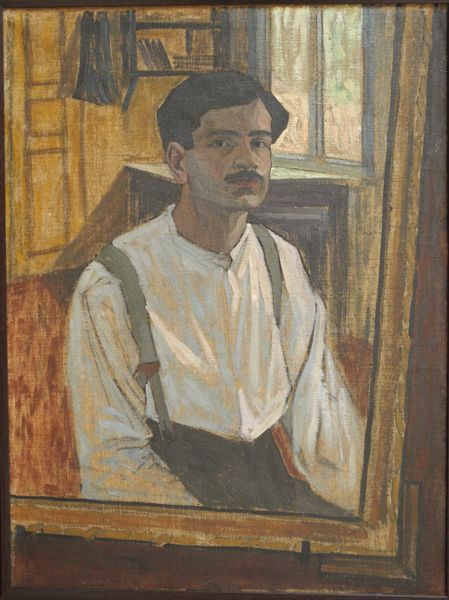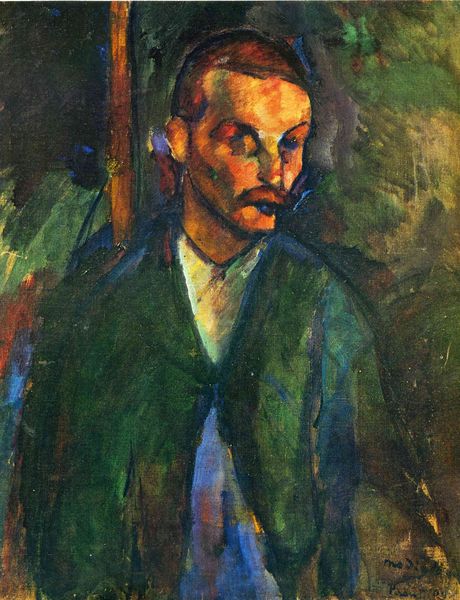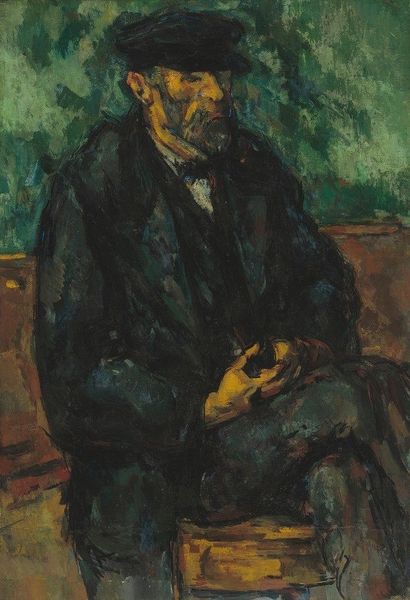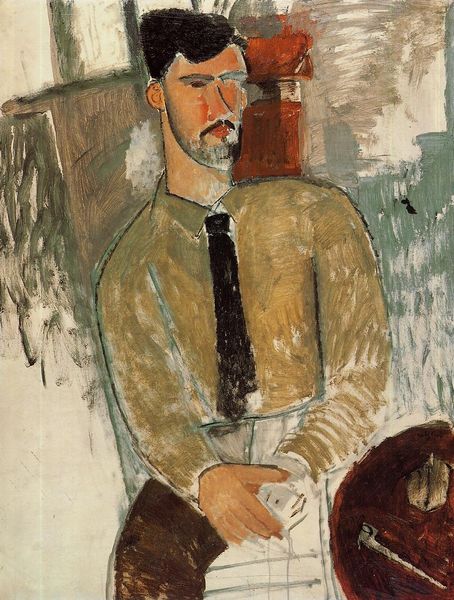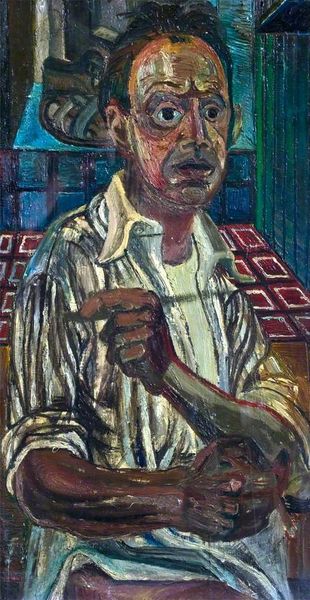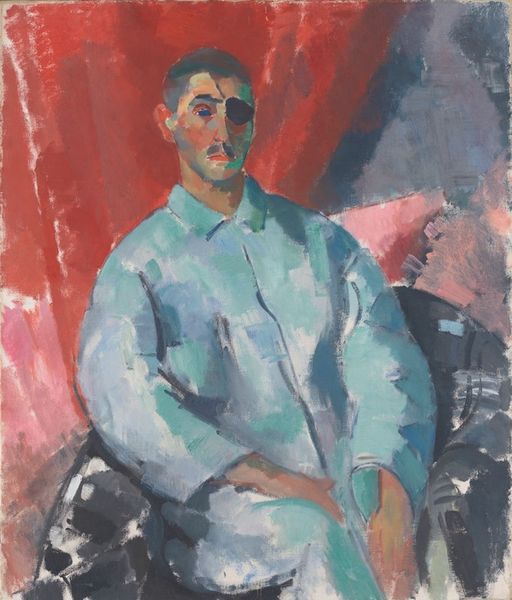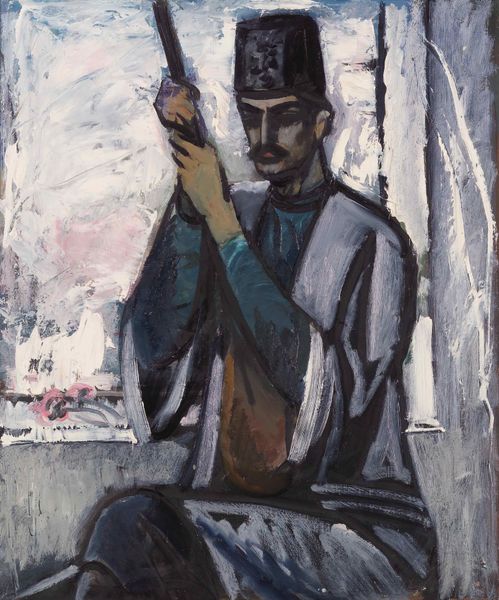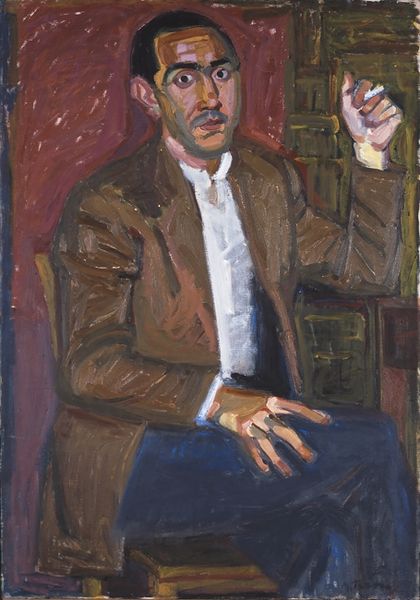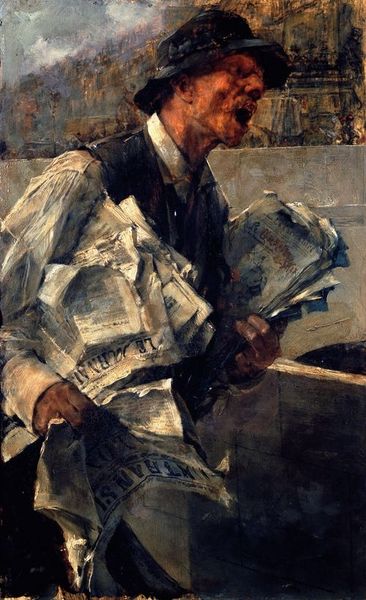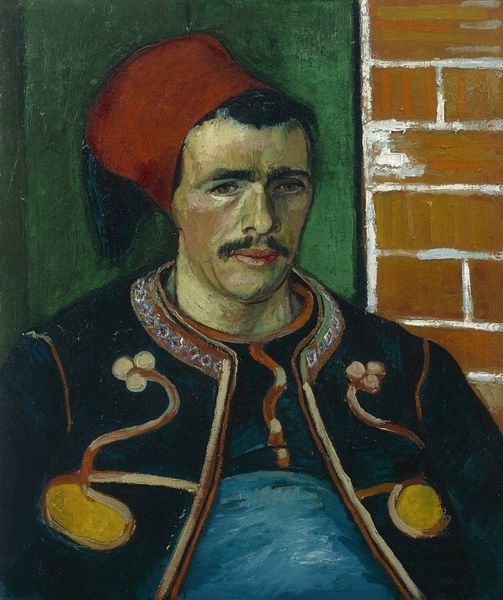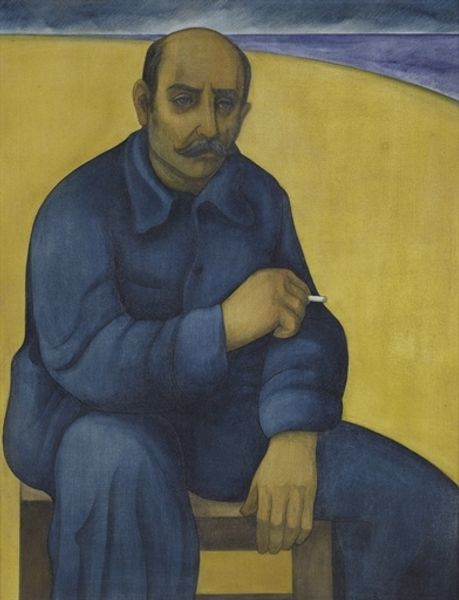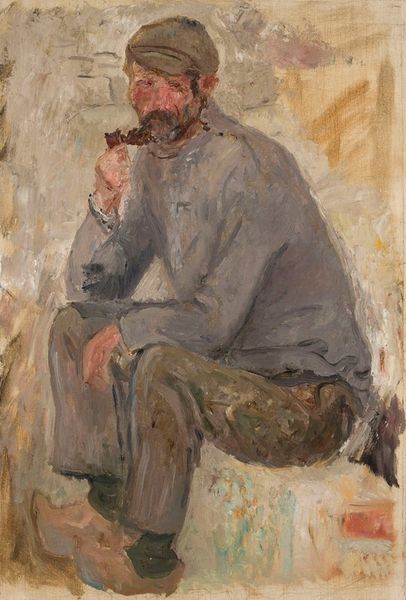
painting, oil-paint, impasto
#
portrait
#
painting
#
oil-paint
#
landscape
#
figuration
#
oil painting
#
impasto
#
genre-painting
#
portrait art
#
realism
Copyright: Public domain
Editor: So, here we have Stefan Dimitrescu’s “Turks at the Café,” painted in 1930 using oil on canvas. There's something quite striking in the men’s gaze that draws me in… What do you see in this piece, particularly concerning identity and representation? Curator: Well, immediately, I think about the complex history of Orientalism and representation. Dimitrescu, as a Romanian artist, is already positioned in a fascinating place – not quite "West," but engaging with similar tropes. The title itself, "Turks at the Café," flattens identity, doesn't it? It's important to consider whether it truly reflects an effort toward genuine understanding, or rather, reinforces existing stereotypes. How does the composition, with the figure in the foreground and another in the background, contribute to this dynamic, do you think? Editor: I see what you mean about the title now, it's so broad. The figure in the front definitely dominates; he’s the focus, the one we are meant to look at, making the other one secondary. But I don’t know if that contributes to stereotypes. Curator: It makes you wonder who the main character is here, what does it mean? What does this choice reveal about the artist's intention, conscious or unconscious, towards these figures and, by extension, the culture they supposedly represent? Thinking about post-colonial theory and power structures can offer useful lenses. Editor: That’s true! Maybe it perpetuates a subtle "us" versus "them" narrative through the visual hierarchy? I hadn't thought about it like that. Curator: Precisely! Art is never created in a vacuum, and exploring its relationship with historical power dynamics is essential. By considering these broader contexts, it allows a more nuanced and ethical engagement. Editor: This has really broadened my understanding; seeing the piece through a post-colonial lens opens up so many new questions. Thanks! Curator: Absolutely! And it's questions, not necessarily answers, that fuel these important dialogues and remind us of the responsibility we have when looking at artworks like this.
Comments
No comments
Be the first to comment and join the conversation on the ultimate creative platform.
